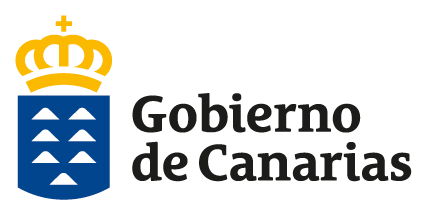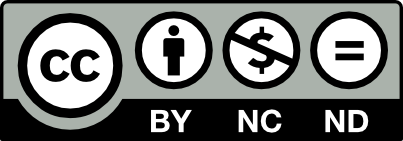LinkedIn como plataforma de comunicación política
DOI:
https://doi.org/10.36151/RCAP.4.8Palabras clave:
comunicación política, liderazgo, LinkedInResumen
La meta del presente estudio es explorar el potencial que tiene la red social profesional LinkedIn como medio de diálogo multidireccional en el ámbito de la comunicación política a nivel global, y en términos de percepción de liderazgo. Para ello, se realiza un análisis de diversos enfoques teóricos que resultan pertinentes, así como una exploración de noticias relevantes a nivel internacional que han tenido a las redes sociales, sus ventajas y riesgos, en el foco. Adicionalmente se llevará a cabo un análisis descriptivo de algunos casos ilustrativos de líderes mundiales muy activos en dicho entorno digital. Los resultados del trabajo permitirán una mejor aproximación posterior al fenómeno de la comunicación política en redes sociales de tipo profesional.
Descargas
Referencias
Arteaga, J. V. (2021). La comunicación política en la red social LinkedIn. En Oportunidades para la participación y la democratización de las organizaciones en el siglo XXI (pp. 293-308). Dykinson.
Borgatti, S. P., Everett, M. G., Johnson, J. C., y Agneessens, F. (2024). Analyzing social networks. SAGE Publications Limited.
Campbell, D. E. (2013). Social networks and political participation. Annual Review of Political Science, 16, 33-48.
Can, U., y Alatas, B. (2019). A new direction in social network analysis: Online social network analysis problems and applications. Physica A: Statistical Mechanics and its Applications, 535, 122372.
Carnes, N., y Lupu, N. (2023). The economic backgrounds of politicians. Annual Review of Political Science, 26, 253-270.
Comes, A. (2023). LinkedIn en comunicación política. Recuperado de https://www.linkedin.com/pulse/linkedin-en-comunicación-política-álex-comes/?originalSubdomain=es
El País, 31-01-2024. ""Tienen sangre en sus manos": los senadores de EE UU arremeten contra las redes sociales por no proteger a los menores"
EU Commission. (2024). Press release 26-03-2024. Commission publishes guidelines under the DSA for the mitigation of systemic risks online for elections. Recuperado de https://ec.europa.eu/commission/presscorner/detail/en/ip_24_1707
Herre, B. (2021). The 'Regimes of the World' data: how do researchers measure democracy? Recuperado de https://ourworldindata.org/regimes-of-the-world-data
Jha, C. K., y Sarangi, S. (2017). Does social media reduce corruption? Information Economics and Policy, 39, 60-71.
LinkedIn. (2024). Página oficial. Recuperado de https://about.linkedin.com/es-es?lr=1
Lührmann, A., Tannenberg, M., y Lindberg, S. (2018). Regimes of the World (RoW): Opening New Avenues for the Comparative Study of Political Regimes. Politics and Governance, 6(1), 60-77.
Ortiz-Ospina, E. (2019). The rise of social media. Recuperado de https://ourworldindata.org/rise-of-social-media
Ritchie, H., Mathieu, E., Roser, M., y Ortiz-Ospina, E. (2023). Internet. Recuperado de https://ourworldindata.org/internet
Røiseland, A., y Vabo, S. I. (2016). Interactive–or counteractive–governance? Lessons learned about citizen participation and political leadership. En Critical reflections on interactive governance (pp. 120-145). Edward Elgar Publishing.
Shepherd, M. E., y You, H. Y. (2020). Exit Strategy: Career Concerns and Revolving Doors in Congress. American Political Science Review, 114(1), 270–284. https://doi.org/10.1017/S0003055419000510
Siegel, D. A. (2009). Social networks and collective action. American Journal of Political Science, 53(1), 122-138.
Similarweb. (2024). Clasificación de los principales sitios web. Febrero 2024. Recuperado de https://www.similarweb.com/es/top-websites/
Sørensen, E. (2020). Interactive political leadership: The role of politicians in the age of governance. Oxford University Press.
Sørensen, E., y Torfing, J. (2016). Political leadership in the age of interactive governance: Reflections on the political aspects of metagovernance. En Critical reflections on interactive governance (pp. 444-466). Edward Elgar Publishing.
Spottswood, E. L., y Wohn, D. Y. (2020). Online social capital: recent trends in research. Current Opinion in Psychology, 36, 147-152
Tang, Z., Chen, L., Zhou, Z., Warkentin, M., y Gillenson, M. L. (2019). The effects of social media use on control of corruption and moderating role of cultural tightness-looseness. Government Information Quarterly, 36(4), 101384.
Torraco, R. J. (2005). Writing integrative literature reviews: Guidelines and examples. Human Resource Development Review, 4, 356–367. https://doi.org/10.1177/1534484305278283
United Nations. (2017). Resolution adopted by the General Assembly on 6 July 2017, Work of the Statistical Commission pertaining to the 2030 Agenda for Sustainable Development (A/RES/71/313).
Utz, S. (2016). Is LinkedIn making you more successful? The informational benefits derived from public social media. New Media & Society, 18(11), 2685-2702.
Valentinetti, D., y Flores Muñoz, F. (2021). Internet of things: Emerging impacts on digital reporting. Journal of Business Research, 131, 549-562.
World Bank Data. (2024). Individuals using the Internet (% of population). International Telecommunication Union (ITU) World Telecommunication/ICT Indicators Database. Recuperado de https://data.worldbank.org/indicator/IT.NET.USER.ZS
World Economic Forum. (2023). Geopolitics. 2024 is a record year for elections. Recuperado de https://www.weforum.org/agenda/2023/12/2024-elections-around-world/
Descargas
Publicado
Número
Sección
Licencia
Derechos de autor 2024 Revista Canaria de Administración Pública

Esta obra está bajo una licencia internacional Creative Commons Atribución-NoComercial-SinDerivadas 4.0.







